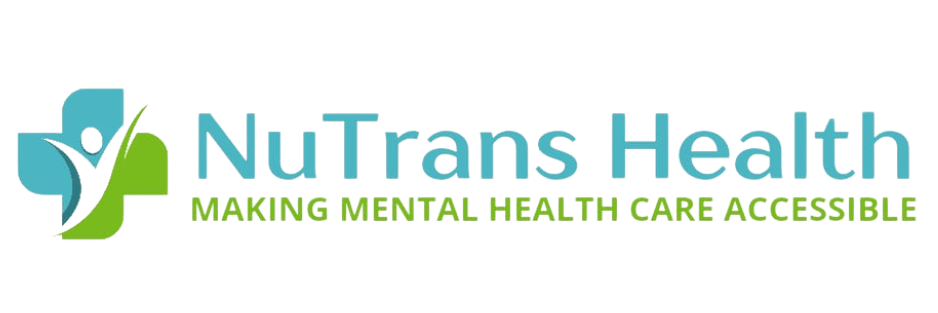Breaking the Silence: Overcoming Mental Health Stigma
Over 23.1% of American adults live with mental illness (NIH, 2022). With over 59 million Americans living with mental illness, it can be considered a significant public health issue (Tulane University). Mental illness covers various conditions varying in severity, from mild to serious. Mental health affects not people at a personal level, such as affecting their ability to be productive at school, work, or taking on familial responsibility, but also society at large. 28,000 children drop out of school yearly due to mental illness (Child Mind Institute), with 63% of them more likely to be incarcerated than college graduates. Moreover, mental health affects overall economic productivity (NAMI) because it affects a person’s ability to form successful relationships with workmates and superiors and perform their duties properly.
One factor that makes mental health a challenging task to solve is stigma. Mental health stigma refers to negative beliefs, attitudes, and behaviors directed at people with mental illness. Lack of understanding, limited knowledge, or fear of mental illness are primary reasons why stigma exists. Though numerous sources of information attempt to educate the public about mental illness, misleading or inaccurate representations of mental illness contribute to stigma (psychiatry.org).
Though treatment options are available to address all forms of mental health illness, many people avoid seeking treatment (Mayo Clinic), with around half of Americans with mental illness not receiving treatment (psychiatry.org). Aside from affecting the opportunity to treat people with mental health illness, stigma has other harmful effects:
- People with mental illness have fewer work opportunities. Moreover, they find it hard to hold a job, stay at school, or engage in social activities.
- People struggling with their mental health may be subject to harassment, bullying, or physical violence.
- Many health insurance policies don’t cover mental illness treatment adequately.
- Lack of self-belief among those with mental health issues prevents them from improving their situation or overcoming challenges.
These issues highlight the urgency of addressing stigma. With such a large proportion of our population affected by the significant impact this stigma has on individuals, families, and society, breaking the silence and overcoming stigma is crucial. By dismantling stigma, individuals are encouraged to seek the help they need, improve the quality of their lives, and contribute meaningfully to society.
How Can We Overcome Stigma?

Overcoming stigma requires a multifaceted attempt by individuals, society, and mental health professionals. Here at NuTrans, we are sharing several ways stigma can be broken:
Seek Treatment:
People might be reluctant to require treatment because of stigma. The fear of being identified or labeled with a mental health issue prevents people from seeking help. However, treatment is needed to address mental health issues by identifying what is wrong and providing actions to reduce symptoms that affect their daily lives.
Isolation:
Stigma may prevent people from speaking openly about their mental illness. Fortunately, help from family, close friends, the clergy, or members of the community may offer effective support once they are aware that people have mental illness. Treating mental illness requires connections with trustworthy people for compassion and understanding.
Joining a Support Group:
Many communities offer programs that provide support groups. National groups, like Mental Health America (MHA) and the National Alliance on Mental Illness (NAMI), offer online programs and resources that educate people to help reduce stigma. The Substance Abuse and Mental Health Services Administration (SAMHSA) offers a helpline that provides emotional support and information through a helpline. Specific groups, such as the Department of Veterans Affairs (VA), offer support for service personnel and veterans living with mental illness.
Not Letting Stigma Create Self-Doubt and Shame:
Though stigma may primarily involve negative impressions from society in general, stigma also comes from within ourselves. We may mistakenly believe that our mental health condition is a sign of personal weakness and try to manage it by ourselves. Being informed about our mental health condition and connecting with others facing similar challenges can help us overcome wrongful self-judgment and regain our footing on our mental health journey.
Get Help from School:
Discriminating students because of their mental health is unlawful. Because of this, many schools have programs that can help children with mental illness affecting their learning. If your child is suffering from a mental health issue, open a line of communication with their teachers and administrators on resources or how to approach your child’s situation best.
Break the Silence! Get Yourself Heard on Breaking Stigma:
Speak at events or send letters to related publications or websites. Take meaningful steps to do your part in instilling courage in sufferers facing challenges made by mental health stigma.
How Can NuTrans Health Help Those Held Back By Stigma?

NuTrans Health can help individuals overcome stigma and seek the help they require by providing a user-friendly platform that simplifies the steps in finding qualified therapists, protects client confidentiality, and helps financially by connecting people with mental health professionals who accept their insurance. NuTrans Health can help individuals prioritize their mental health without the stigma or the fear of judgment or discrimination by providing accessibility and discretion. Moreover, NuTrans Health offers a range of services, including individual and family counseling, access to support groups, and telehealth options to ensure that support is available to individuals at various stages of their journey to recover from various mental health issues.
Is Stigma Preventing You from Seeking Help?
Let NuTrans Health provide you with the platform to simplify getting much-needed help. Contact us at (844) 748-8443. Our growing network covers North Carolina, New Jersey, and other locations nationwide.

